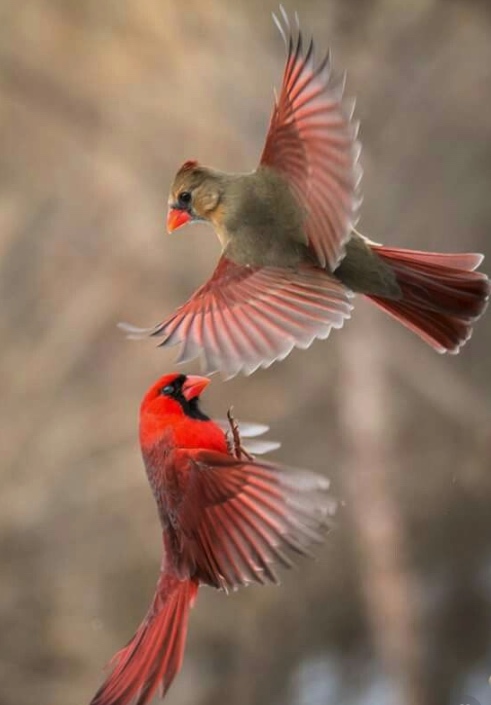

Male and female northern cardinals in autumn. [o]
EARLY MARRIAGE
There’s a male cardinal in the yard of our rented house
who molts his red Mohawk in the spring.
I see the ear holes in his black, ashy head.
He feeds a smaller female.
I call him The Old King.
On the way to Food Lion,
the train horn massages my heart,
persistent like a cat kneading.
The train talks about its other towns,
does its best,
squawks honestly
like a lonely child.
When I buy sunflower seeds for the feeder
I remember the injured blackbird in elementary school.
When I brought it a dish of granola,
our cat Mia had feathers splayed stiff in her jaw,
an inky, jerking fan.
I know your grocery list by heart:
cheddar, tuna, pistachios, Earl Gray, olives.
I sometimes feel death
trying to throw a blanket over us
as if we were an unruly fire.
Now we’re looking to buy a home
for a while
and I feel guilty about moving the bird feeder away.
We’ll sign a deed and become
the caretakers of a great brick beast
terrifying, wonderful,
a rusted red rectangular whale —
happily swallowed.
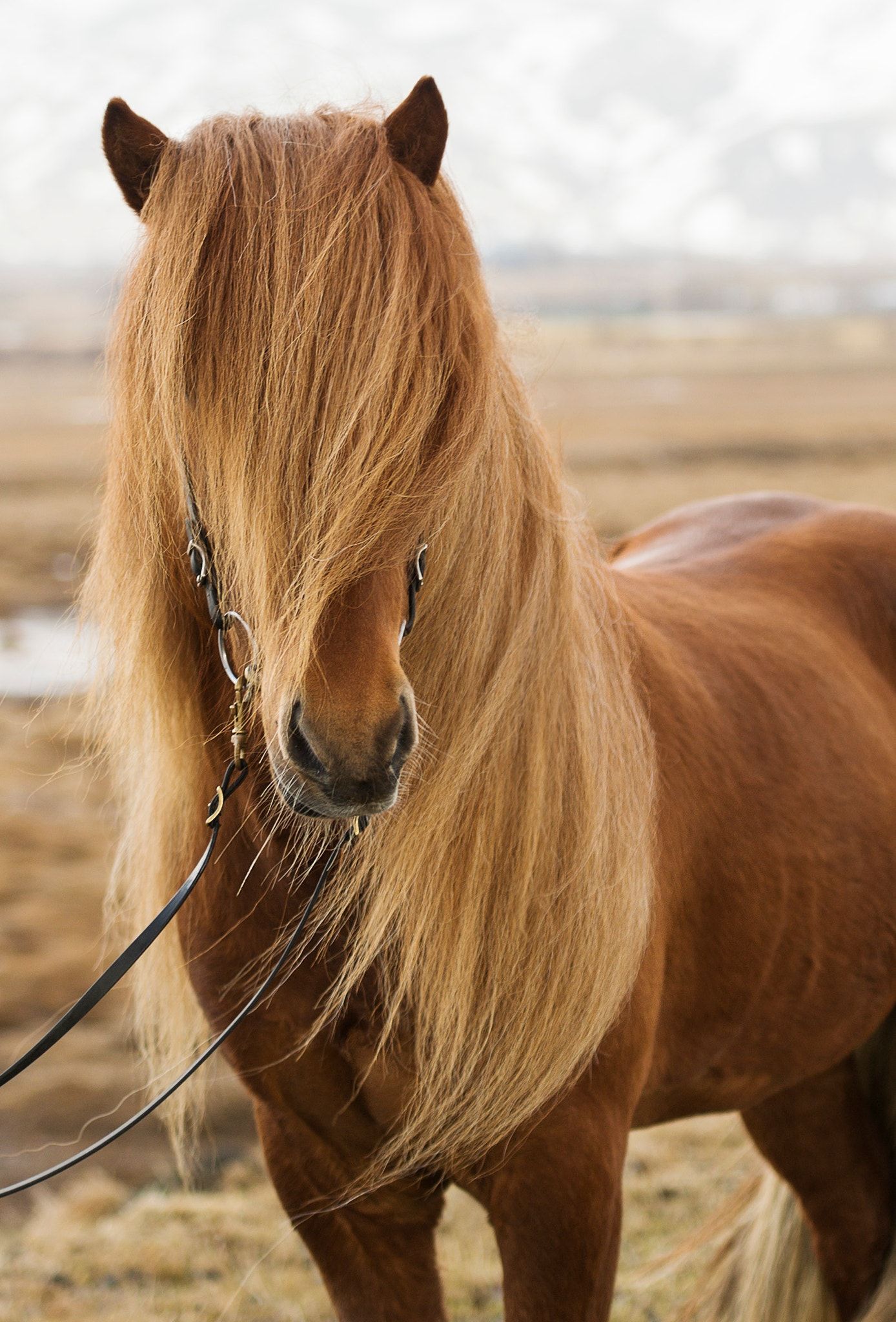
How the heart sees . . . like Mars dust. [o]
RED HORSE
My heart is a red horse,
tall and rust haired,
like conte chalk,
like Virginia clay,
like Mars dust.
Waiting, its mane still on its warm neck,
its hooves shuffle dust out of the grass.
And then,
it is off
four knees lift,
pulled into levitation.
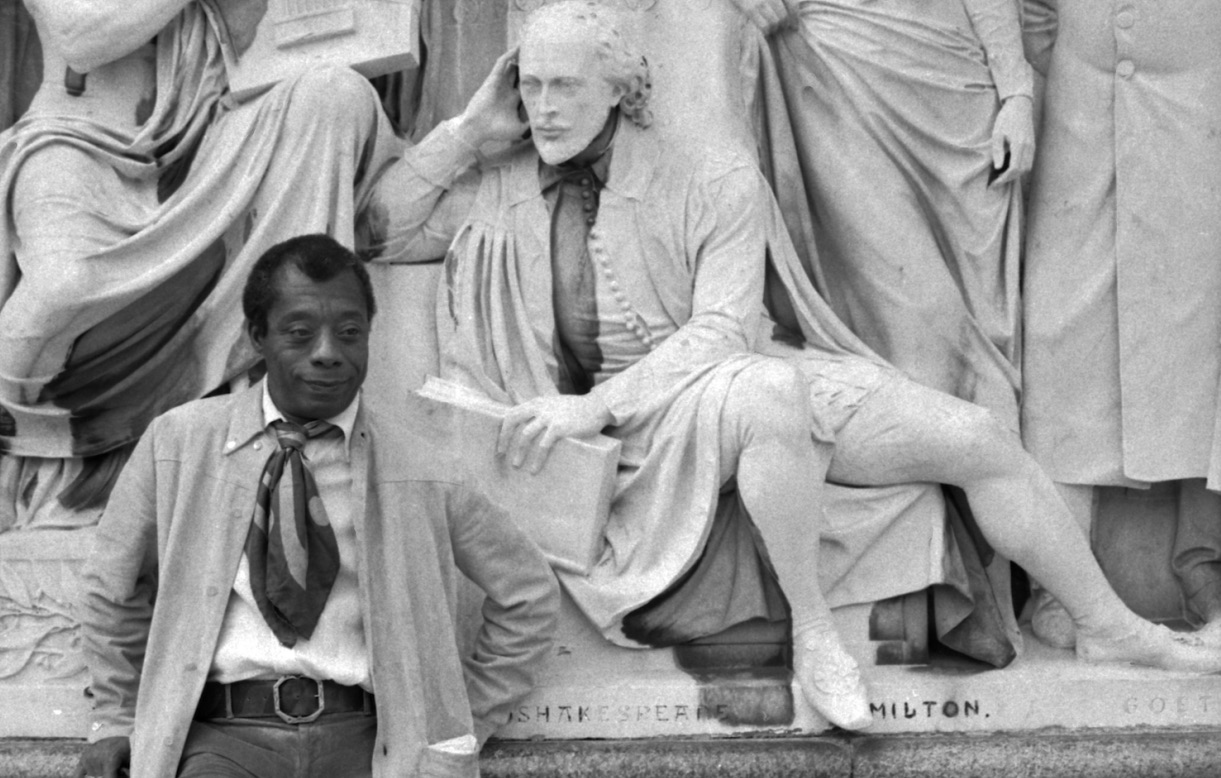
"I see the water, I see the mooring posts, James Baldwin." Alexander Hamilton is listening. [o]
ANNAPOLIS
My body screams,
a root-bound plant.
Away from the computer screen,
at the docks,
I see the water,
I see the mooring posts, James Baldwin.
I say the sea bird names I like:
wren, gull, sandpiper, heron.
It’s chilly.
I tuck my ears into my new wool cap
from the hat shop.
Across the channel,
a man walks curled over into the wind.
From this distance, he looks small.
I watch him,
knowing I’ll never know his name,
and cup him into my coat.
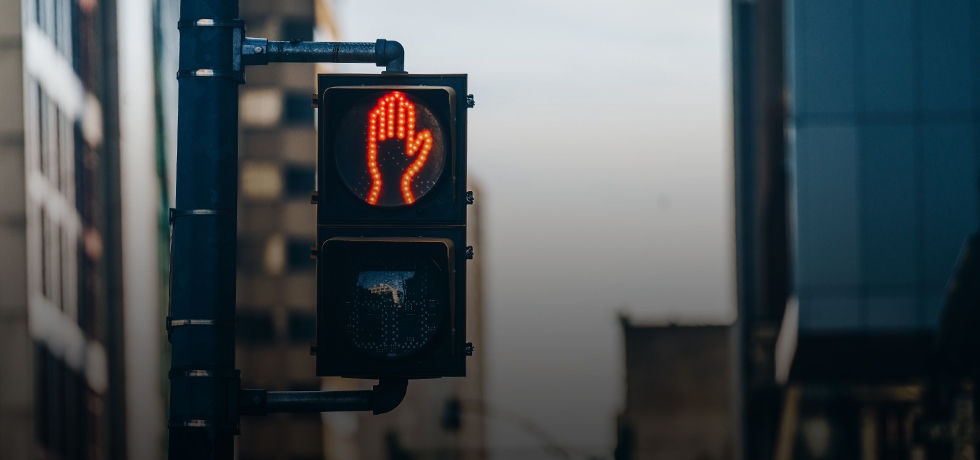
2017
Fractions of the world fall away
into digital versions, spectral incarnations
augmented breath
measured in social media twitches
and pesticide parts per million,
below unsteady feet
craving dirt
toxins clot in the carpet
and the yard
in the wheat
and the water pipes
and in the lack of water pipes
and water.
Mouths and keystrokes
spread absence.
Virtual wings
cosplay armor, avatars
party affiliations
give us courage
shift phases,
disappear in the heat.
Listen to the AI bots
inventing languages —
the light wants to get in,
between each stitch of the curtain
each tag in the code.
Satellites, bulldozers, histories
spliced genes and knuckles
look for stable roots, new platforms.
The unseen claim their reflections
in public bathrooms.
We gather food ether solar power,
grateful, grieving
we vote conceive launch initiatives
run out of time
pick up tools, break bones, track engagement
store cryptographic seeds and incantations
score points secure barricades hold hands
on gravel roads or mobile devices,
we grow spinach leaves into heart tissue,
bare our blood-pumping chests,
fight the dissolution into light,
clutching clay totems
of ourselves,
running, seeking
channeling floating in turning away from
an open space
that fills
and holds us.
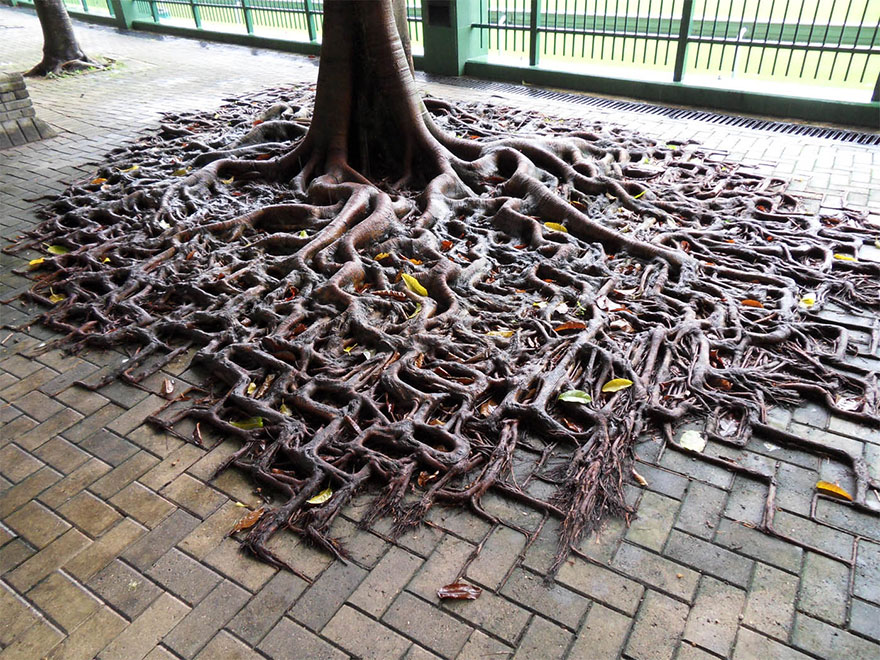
APRIL
Stretching out
from dry wood,
a new leaf.

Julia Travers fills out
THE WILD CULTURE SCRIBBLER'S QUESTIONNAIRE
1 What is your first memory and what does it tell you about your life at that time and your life at this time?
I’m not sure which memory is my first, and I like to keep some of my early memories to myself, like personal treasures. But, I do remember playing with my brother outside, and am glad I did that often. I still enjoy playing outside.
2 Can you name a handful of artists in your field, or other fields, who have influenced you — who come to mind immediately?
I am grateful to James Baldwin, Tony Morrison, Nina Simone, Mary Oliver, Pablo Neruda, J.D. Salinger, Sharon Salzberg, Rainer Maria Rilke, Otis Redding, Alberto Giacometti, Marc Chagall, and many, many others.
3 Where did you grow up, and did that place and your experience of it help form your sense about place and the environment in general?
I grew up near a body of water in Virginia, swam often, and was very connected to the natural environment there. I have a strong need to return to water regularly.
4 If you were going away on a very long journey and you could only take four books — one poetry, one fiction, one non-fiction, one literary criticism — what would they be?
I’m sorry, I cannot choose.
5 What was your most keen interest between the ages of 10 and 12?
I think between fifth and seventh grade I was quite overwhelmed by trying to survive early adolescence. I did enjoy writing at that time.
6 At what point did you discover your ability with poetry?
I knew from a very young age that I wanted to write, and began to practice. I am still doing that.
7 Do you have an ‘engine’ that drives your artistic practice, and if so, can you comment on it?
I think listening to myself is a powerful process in all areas of my life — certainly in my creative expression.
8 If you were to meet a person who seriously wants to do work in your field — someone who admires and resonates with the type of work you do, and they clearly have real talent — and they asked you for some general advice, what would that be?
Listen to yourself.
9 Do you have a current question or preoccupation that you could share with us?
Sometimes it’s hard to find a healthy balance between rest and action and surrender and motivation.
10 What does the term ‘wild culture’ mean to you?
A human’s free spirit. A way of being a person that takes organic shapes.
11 If you would like to ask yourself a final question, what would it be?
Julia, are you enjoying the snow storm? (Yes, I am.)

JULIA TRAVERS is a writer, artist, and teacher. She writes poetry, fiction, essays, and news, and her work can be found in The Mindfulness Bell, American Public Radio, Heron Tree Poetry Journal, and other publications. She lives in Central Virginia.
For more on Julia's work, see her website.

Add new comment